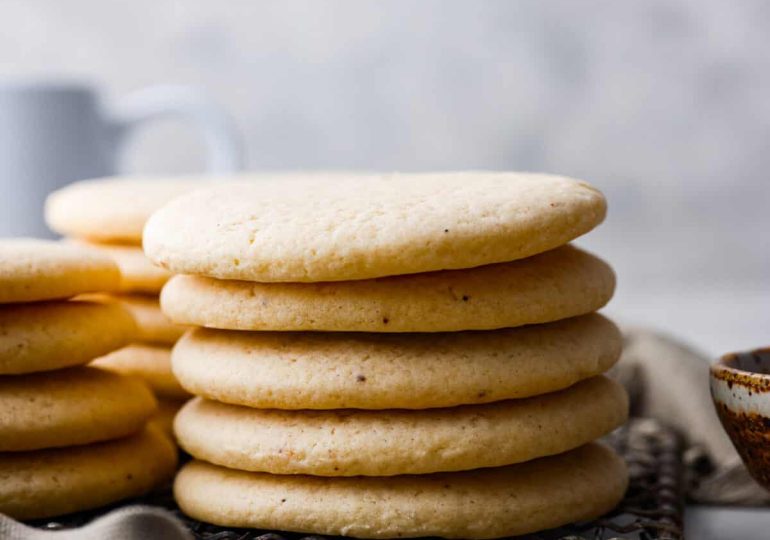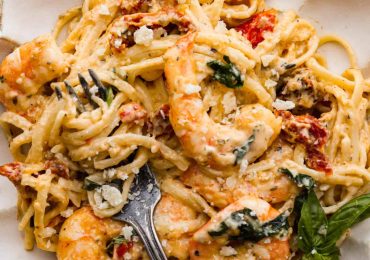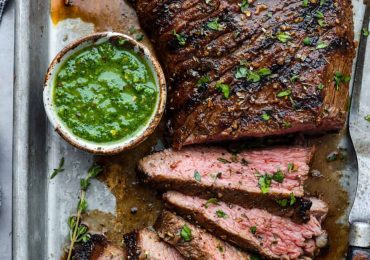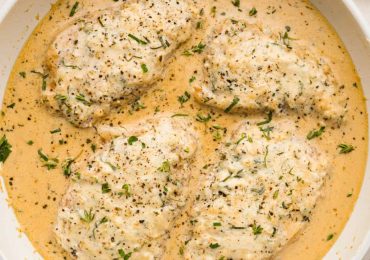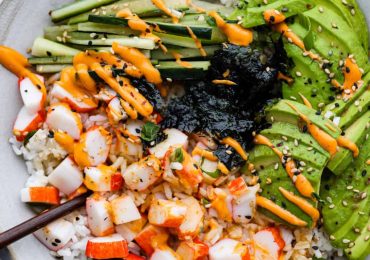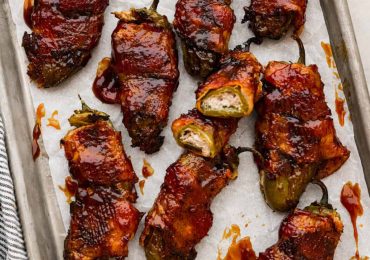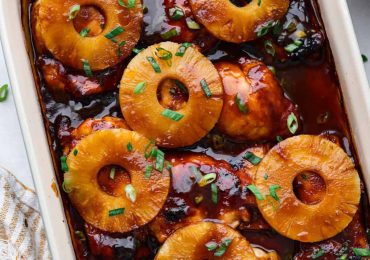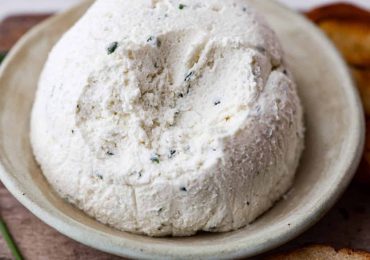This website may contain affiliate links and advertising so that we can provide recipes to you. Read my disclosure policy.
Delicately crumbly and a little bit sweet, these tea cakes are the perfect afternoon snack! They’re super simple, but so irresistible. Make a cup of your favorite tea to serve with them and enjoy!
I could go on and on about how much I love cookies and biscuits. They’re great on their own or served with a cup of tea or coffee! They’re also a great finger food, especially for the holidays. No one can resists a good cookie! If you love these tea cakes, you’ll have to try Linzer cookies, hamantaschen, madeleines, or Scottish shortbread next!
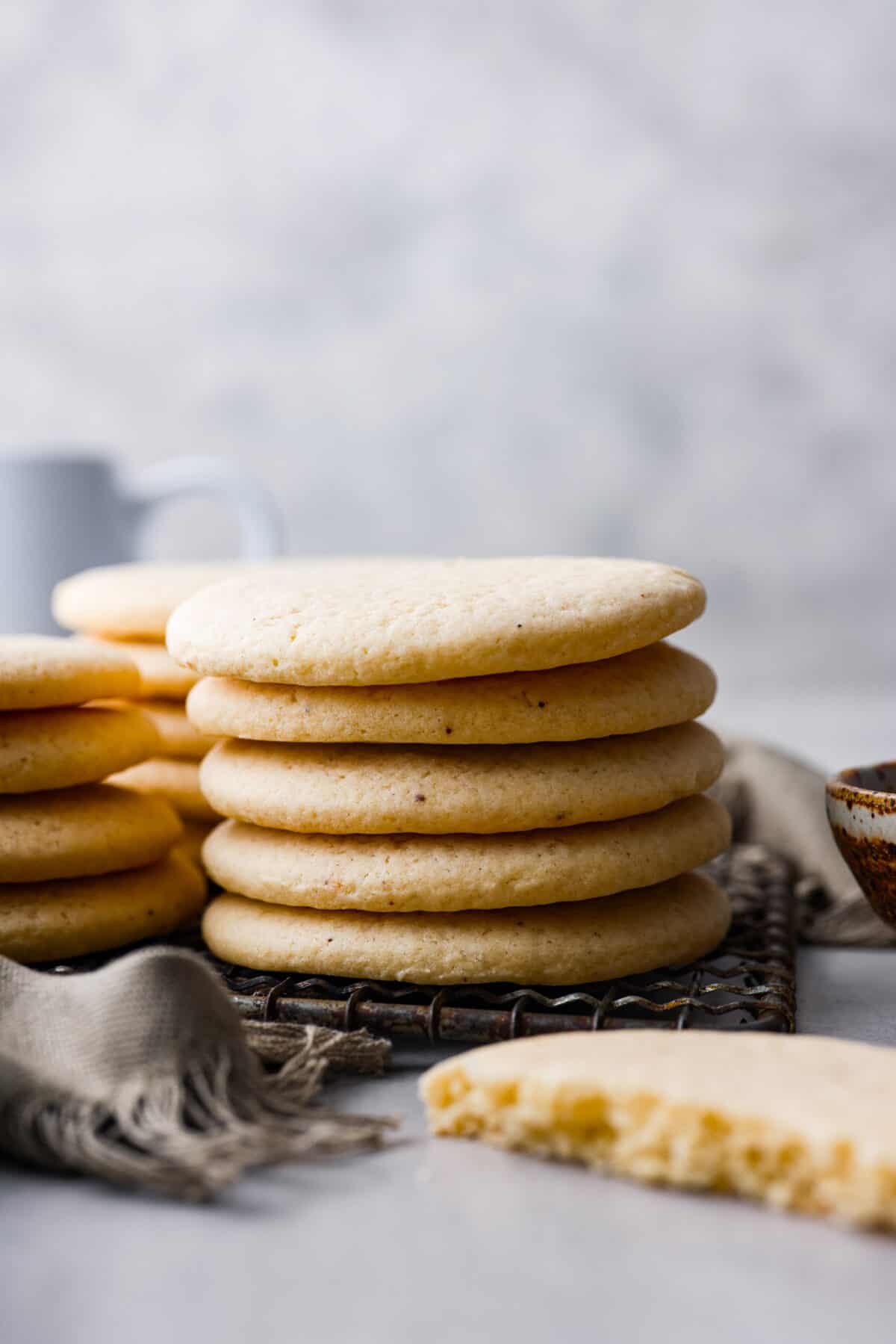
Tea Cake Recipe
Let me tell you, my love for cookies and little cakes knows no bounds. They’re little bites of happiness, perfect solo or partnered with a comforting cup of tea, coffee, or hot chocolate! Especially during the holidays, they’re the ultimate finger food that steals the show. Cookies are everyone’s weakness! You can’t go wrong with bite-sized desserts.
Now, let’s talk about these fantastic tea cakes. They have bite that’s soft, crumbly, and just the right amount of sweet. They embody everything I adore about cookies and biscuits, but with a unique twist. Ideal for a cozy afternoon or a sweet ending to a meal, these tea cakes will keep you reaching for just one more. If you’re a fan of Danish butter cookies or shortbread, I know you’ll love these just as much as I do!
Ingredient List
Let’s break down the magic of these tea cakes, one ingredient at a time. You can find exact measurements for each in the recipe card at the end of the post!
- Unsalted Butter: This is the creamy star of the dough. It makes everything soft and smooth.
- Granulated Sugar: Adds just the right sweetness to make the tea cakes super tasty.
- Large Eggs: These keep the tea cakes moist and soft. They’ll mix in easily if you bring them to room temperature first.
- Buttermilk: Buttermilk adds a nice tangy taste and a bit of moisture. It also gives the tea cakes an even more tender crumb.
- Vanilla Extract: A trusty flavor booster!
- All-Purpose Flour: Gives the cookies their structure.
- Baking Soda and Baking Powder: Make the tea cakes fluffy and soft when baking.
- Salt: This makes sure the cakes aren’t too sweet and taste just right.
- Ground Nutmeg: A bit of this spice gives the tea cakes a cozy flavor. You could also use a little cinnamon if you wanted to!
How to Make Homemade Tea Cakes
Grab your ingredients and get ready to make the best batch of buttery, crumbly cookies! These tea cakes are so tasty, you’ll wonder why you’ve never made them from scratch before!
Prepare Your Dough
- Butter Mixture: In the bowl of a stand mixer, cream together the butter and sugar until light and fluffy, about 4 minutes.
- Add Wet Ingredients: Add the eggs one at a time, mixing until combined. Scrape down the sides and bottom of the bowl between each egg. Add the vanilla and buttermilk and mix until combined.
- Add Dry Ingredients: Whisk together the flour, baking powder, baking soda, salt, and nutmeg in a large bowl. Add the dry ingredients to the wet ingredients and mix until just combined. The dough will be very soft and a little sticky.
- Chill Dough: Separate the dough into 2-3 sections and wrap tightly in plastic wrap. Chill in the fridge for 1-2 hours.
Bake
- Preheat Oven, Prepare Pans: Once the dough has chilled, preheat the oven to 375 degrees Fahrenheit and line two baking sheets with parchment paper. Then prepare your workspace by lightly dusting a clean surface with flour.
- Shape: Using one section of dough at a time, roll it out until it is 1/4 inch thick. Use a round cookie cutter or biscuit cutter to cut out as many cakes as you can before bringing the scraps together. Wrap the scraps in plastic wrap and place in the fridge.
- Bake: Place the cakes on the prepared baking sheets leaving 2 inches between them. Bake for 9-10 minutes, just until they lose the sheen on top. They should not be browned at all. Let the cakes cool on the baking sheet for 3-4 minutes before transferring to a cooling rack to finish cooling.
- Repeat and Serve: Repeat with the remaining dough, bringing the scraps all together and rolling out again. Serve the finished cakes with tea or coffee and enjoy!
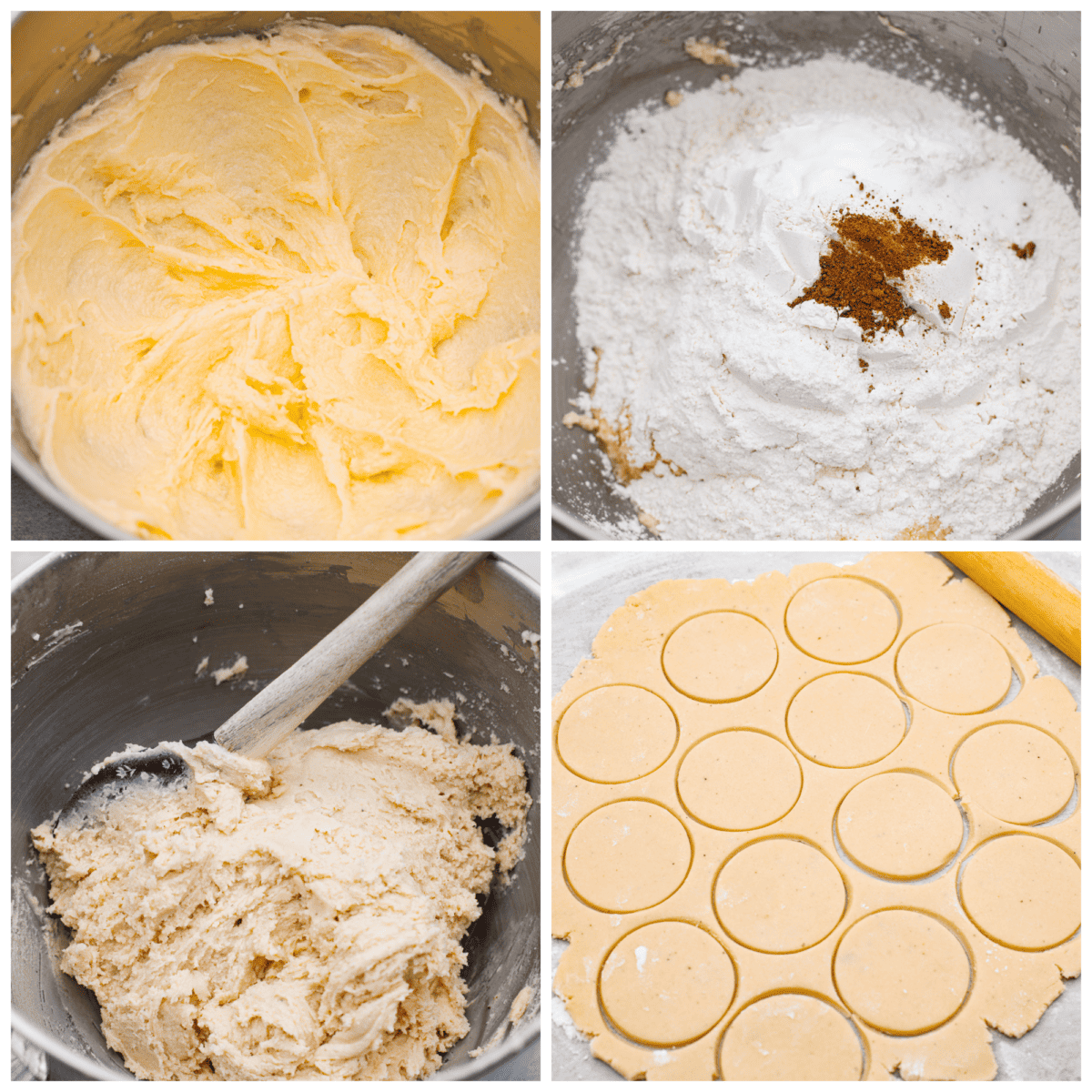
Tips for the Best Tea Cakes
- Room Temperature Ingredients: Use room temperature ingredients. The butter, eggs, and buttermilk will all be able to blend together to form a smooth, uniform dough if the ingredients are at room temperature. Set them out on the counter 2-3 hours before you plan to bake.
- Use a Floured Surface: The dough is a very soft one, so dust the work surface with flour as needed to prevent it from sticking.
- Change Cooking Time: Depending on the size of your circle cutter, the cakes may need more or less time to bake. I used a 3-inch biscuit cutter and they took about 9 minutes to bake in my oven. The key to doneness is to watch for the sheen on the cakes to disappear. The underbaked dough will look shiny but will change to matte as soon as they are ready to come out of the oven. Make sure there is no lingering small spot of shiny dough before removing them from the oven.
- Add Powdered Sugar: For a little extra sweetness, you may dust the cooled cakes with powdered sugar or you can sprinkle the dough circles with coarse sugar or cinnamon sugar.
- Omit Spices: Not everyone loves nutmeg, so feel free to dial back on the ground nutmeg or to omit it completely. For a different flavor, you may add 1-2 teaspoons of fresh lemon zest to the dough.
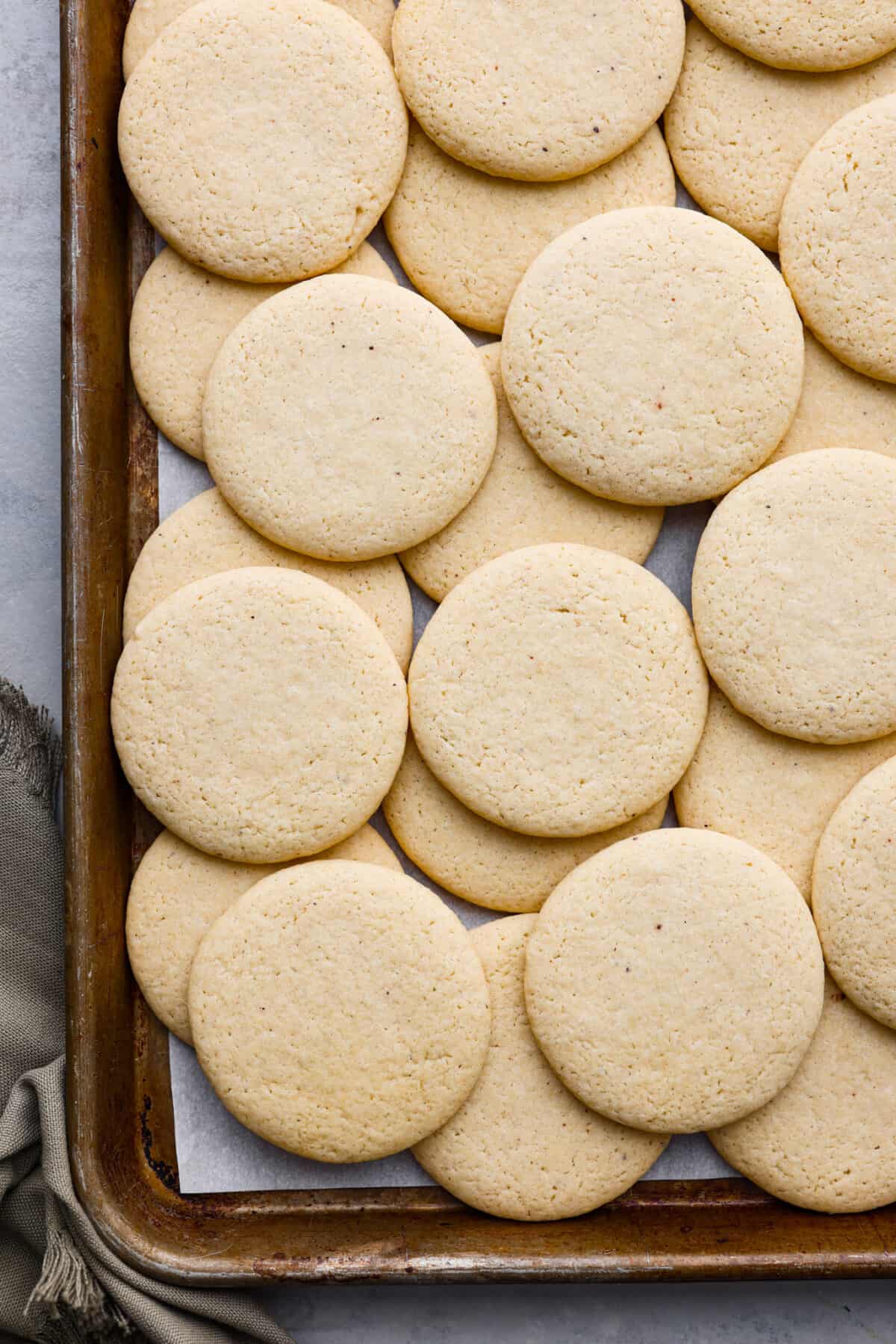
Storing Leftovers
Store in an airtight container at room temperature for up to 5 days. They are best kept in a single layer, otherwise, they may stick to each other. If you need to stack them, place a sheet of parchment paper or wax paper between the layers.
Can Tea Cakes Be Frozen?
Yes! Tea cakes may be frozen after they are baked. Line them up on a parchment-lined baking sheet and freeze for 2-3 hours, until the cakes are frozen through. Transfer to an airtight container. They will keep in the freezer for up to 3 months. Thaw at room temperature for 3-4 hours. They will keep at room temperature for up to 5 days after they have been thawed.
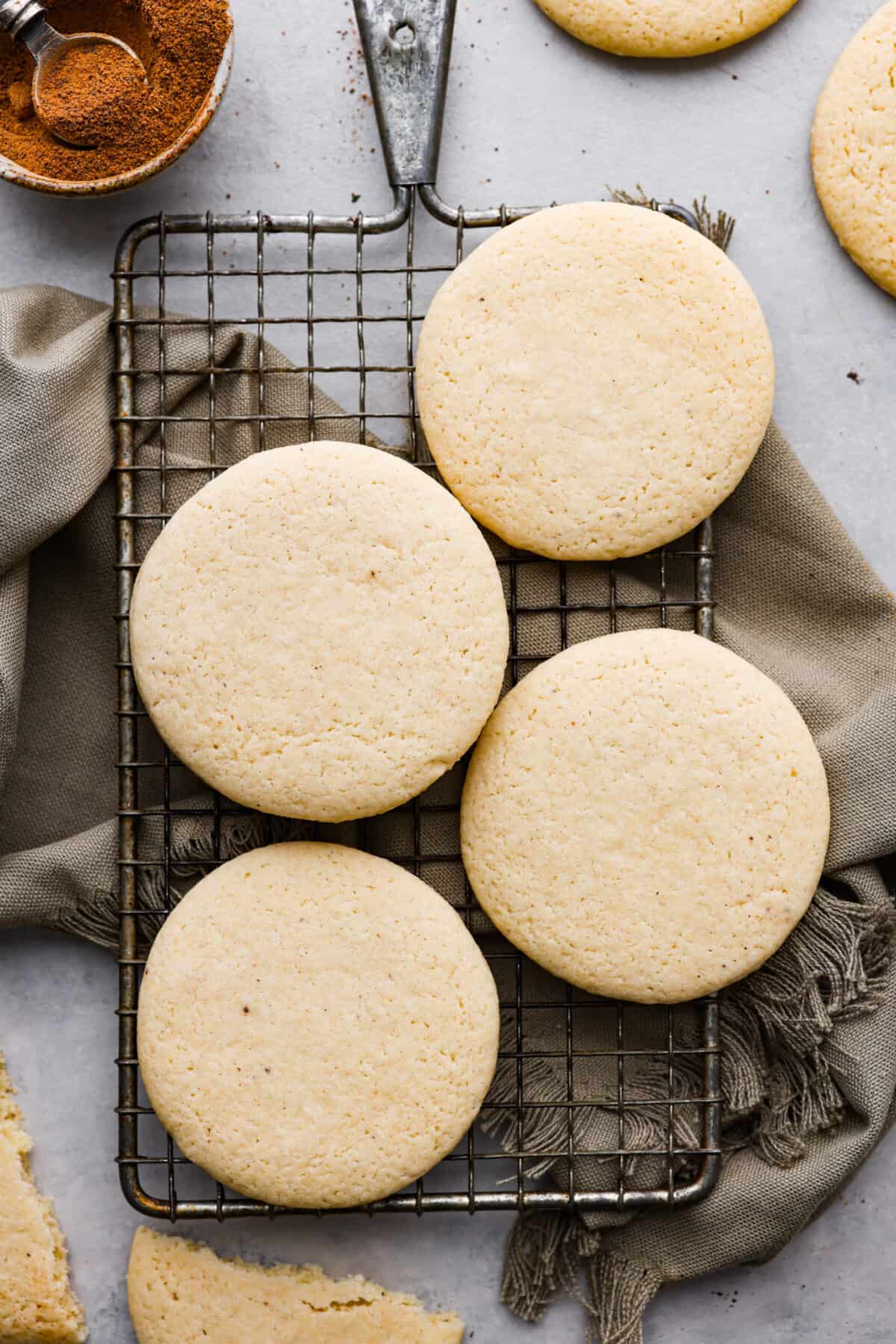
Pin this now to find it later
Pin It
-
In the bowl of a stand mixer, cream together the butter and sugar until light and fluffy, about 4 minutes.
-
Add the eggs one at a time, mixing until combined. Scrape down the sides and bottom of the bowl between each egg. Add the vanilla and buttermilk and mix until combined.
-
Whisk together the flour, baking powder, baking soda, salt, and nutmeg in a large bowl. Add the dry ingredients to the wet ingredients and mix until just combined. The dough will be very soft and a little sticky.
-
Separate the dough into 2-3 sections and wrap tightly in plastic wrap. Chill in the fridge for 1-2 hours.
-
Once the dough has chilled, preheat the oven to 375 degrees Fahrenheit and line two baking sheets with parchment paper. Prepare your workspace by lightly dusting a clean surface with flour.
-
Using one section of dough at a time, roll it out until it is 1/4 inch thick. Use a round cookie cutter or biscuit cutter to cut out as many cakes as you can before bringing the scraps together. Wrap the scraps in plastic wrap and place in the fridge.
-
Place the cakes on the prepared baking sheets leaving 2 inches between them. Bake for 9-10 minutes, just until they lose the sheen on top. They should not be browned at all. Let the cakes cool on the baking sheet for 3-4 minutes before transferring to a cooling rack to finish cooling.
-
Repeat with the remaining dough, bringing the scraps all together and rolling out again. Serve the finished cakes with tea or coffee and enjoy!
Calories: 169kcalCarbohydrates: 24gProtein: 3gFat: 7gSaturated Fat: 4gPolyunsaturated Fat: 0.4gMonounsaturated Fat: 2gTrans Fat: 0.2gCholesterol: 33mgSodium: 84mgPotassium: 37mgFiber: 1gSugar: 10gVitamin A: 215IUCalcium: 12mgIron: 1mg
Nutrition information is automatically calculated, so should only be used as an approximation.
